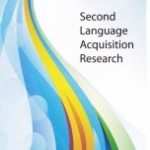 Volume 15 Issue 4
Volume 15 Issue 4

Utilizing the CLIL Approach in a Japanese Primary School: A Comparative Study of CLIL and EFL Lessons
In recent years, Content and Language Integrated Learning (CLIL) has become the subject of attention, especially in East Asian countries, due to the introduction of English as a Foreign Language (EFL) education in primary schools.

Authenticity of Purpose: CLIL as a way to bring meaning and motivation into EFL contexts
In this paper I will outline how Content and Language Integrated Learning (CLIL) can be used to achieve what Coyle, Hood and Marsh (2010, p. 5) refer to as “authenticity of purpose” and provide a better vehicle for authentic language exposure and production in English as a Foreign Language contexts.

Bestriding Boundaries: Towards Talk Authenticity in the Undergraduate Business Communication Classroom
The challenge of creating an authentic learning environment in language classrooms has been highlighted by CLIL and ESP scholars alike (e.g. Dalton-Puffer, 2007; Belcher, 2006). This paper seeks to address this issue of authenticity in the classroom from a novel perspective within a specific context, namely undergraduate business communication teaching in Hong Kong.

A Case of CLIL Practice in the Turkish Context: Lending an ear to Students
Though CLIL (Content and Language Integrated Learning) has not yet been extensively practiced in Turkey at all educational levels, it could be observed mainly at the higher education levels at some selected faculties of either state universities or private ones.

Bi-cultural aspects of second language learning in a bilingual context
Taking into account the effect of diglossia in Arabic and its orthographic complexity, this study is aiming to investigate differences between Arabic-speaking (L1) and Hebrew-speaking (L1) parents’ self-reports on their children’s language practice at home within the framework of Family Language Policy.

The More the Merrier? Bilingualism in an Academic Perspective: Exploring the Implementation of English-medium Instruction in Taiwanese Tertiary Education
The purpose of this study was to investigate the effects of English-medium instruction in the context of Taiwanese tertiary EFL and content area education. Due to the prevalence of globalization, English has gradually become the only language of instruction in academia, especially in Asia such as Taiwan.

English and Integrated Water Resources Management: A Training Program for the Mekong River Commission
This paper outlines a case study of a content-and-language integrated preparatory program for professionals from five countries in the Mekong River Basin. The broad aim of the program was to improve participants’ ability to use English for communication in the context of integrated water resources management.








